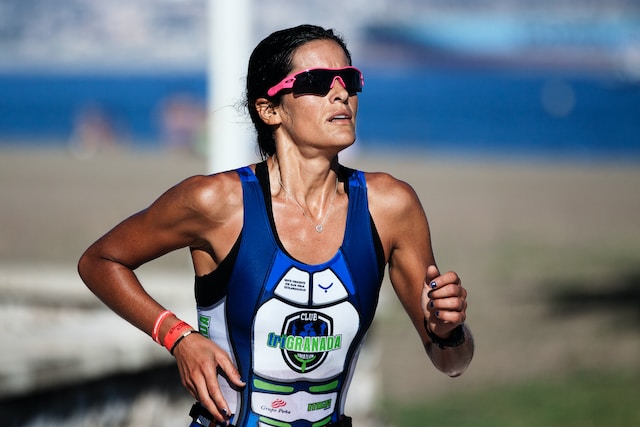Competitive running demands not only physical strength but also unwavering mental toughness. In the world of racing, where seconds can make all the difference, the ability to push through pain, setbacks, and self-doubt can be the key to success. Kara Goucher, a highly regarded American long-distance runner, is a shining example of mental resilience on the track. Her journey offers invaluable lessons for competitive runners seeking to cultivate their own mental fortitude.
Goucher’s career has been characterized by moments of triumph and adversity. Through it all, she has honed her mental toughness, allowing her to overcome obstacles and deliver exceptional performances. Her resilience on the track stems from a combination of mindset, preparation, and a relentless drive to push beyond perceived limits.
One of the core lessons Goucher imparts to competitive runners is the power of a positive mindset. She emphasizes the importance of reframing challenges as opportunities for growth and learning. Rather than viewing setbacks as failures, Goucher sees them as stepping stones to success. This mental shift allows her to approach each race with optimism and unwavering belief in her abilities.
Resilience Lesson #1: Cultivate a positive mindset. Competitive runners must train their minds to view challenges as opportunities rather than setbacks. By embracing a positive outlook, athletes can approach races with confidence and resilience, knowing that every experience, regardless of the outcome, contributes to their growth and progress.
Furthermore, Goucher stresses the significance of visualization and goal-setting in building mental resilience. She envisions herself crossing the finish line, achieving personal bests, and surpassing her competitors. Visualization techniques help her develop mental toughness by familiarizing her mind with success, boosting confidence, and creating a mental blueprint for race day.
Resilience Lesson #2: Harness the power of visualization and goal-setting. Competitive runners can benefit from incorporating visualization exercises into their training routines. By picturing themselves achieving their goals, they can reinforce positive neural pathways, enhance focus, and build mental resilience. Coupled with specific and attainable goals, this practice empowers runners to stay motivated and overcome challenges.
Moreover, Goucher emphasizes the importance of adaptability and mental flexibility during races. The ability to adjust race strategies, respond to unforeseen circumstances, and maintain composure in high-pressure situations is crucial. Goucher’s mental resilience allows her to stay focused on her race plan while making necessary adjustments on the fly.
Resilience Lesson #3: Embrace adaptability and mental flexibility. Competitive runners must prepare themselves to face unexpected situations during races. Being mentally flexible enables them to adjust their tactics and mindset quickly, ensuring they stay on track to achieve their goals even when faced with unforeseen challenges.
In conclusion, Kara Goucher’s journey as a competitive runner serves as a blueprint for developing mental toughness on the track. Through a positive mindset, visualization techniques, and adaptability, she has mastered the art of mental resilience. Competitive runners can learn from her experiences and apply these lessons to their own training and races. By cultivating a strong mental game, runners can overcome self-doubt, navigate challenges, and unlock their full potential on the track. Ultimately, mental toughness becomes the driving force that propels them towards achieving their athletic dreams.










